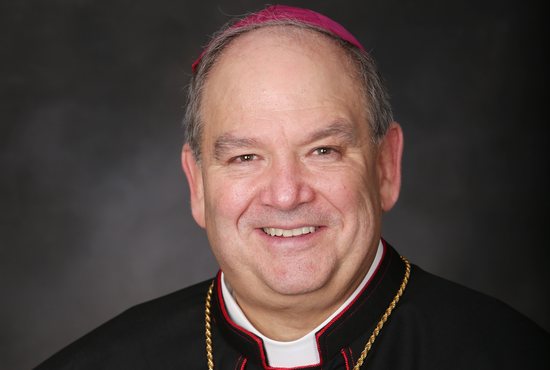Earlier this year, in one of my “Weekly Word” email newsletters, I urged you to contact your representatives at the Minnesota State Capitol regarding the potential negative consequences associated with the proposed physician-assisted suicide legislation under consideration this term.
Even when such legislation is veiled in euphemistic language to make it more acceptable to the residents of our state, it is crucial to recognize that our Catholic belief in the sanctity of life commences at conception and endures until natural death. Various bishops and faithful individuals in other regions and nations have provided compelling accounts of the adverse effects that ensue when societies descend the slippery slope of disregarding the dignity of human life.
Fortunately, the opposition to assisted suicide transcends religious affiliations, as it is rooted in the understanding that we are caretakers of life’s gift rather than its ultimate authority.
The Minnesota Catholic Conference (MCC), which serves as the public policy advocate for the Catholic bishops of Minnesota, plays a pivotal role in [ppp1]—a diverse, bipartisan coalition comprising over 50 organizations committed to opposing assisted suicide and advocating for improved care standards.
This coalition has amplified the voices of healthcare professionals, individuals with disabilities, and veterans’ groups. These opponents of assisted suicide underscore how its legalization could worsen financial disparities, exacerbate existing healthcare inequities, undermine the doctor-patient relationship, and blur the distinction between life-saving interventions and end-of-life measures. Consequently, the progress of the legislation has stalled, and its prospects of passing this year are diminishing daily. This is indeed a reason for gratitude!
In reality, if more individuals were informed about the available options for advance care planning and the significance of palliative care, the demand for assisted suicide would likely diminish significantly. Our consistent message to legislators has been to prioritize policy measures that enhance care quality rather than expedite death. While this message has been resonating, we must not presume victory yet. I urge you to persist in prayer regarding this matter and to engage with our legislators on this critical issue.
I express my deep appreciation for Jason Adkins and the MCC team, who not only facilitate effective communication of our Church’s positions to legislators and government officials but also keep us, as Catholic citizens, informed about Capitol affairs. I recommend visiting the MCC website for the latest updates on the assisted suicide legislation and for end-of-life resources aligned with our faith.
In another section of The Catholic Spirit, you will encounter the [ppp2] that delineates the current challenges faced by the conference in safeguarding our religious liberty, particularly our freedom to uphold the Church’s teachings on the inherent male and female identity bestowed by God.
While Pope Francis has demonstrated support for individuals grappling with gender dysphoria and has emphasized the Church’s pastoral obligation towards transgender individuals who have undergone medical interventions, he has strongly criticized “gender ideology” for its tendency to negate inherent differences.
Recently, the Holy Father referred to gender ideology as the “ugliest danger” confronting society. Just as Jesus presented “hard teachings” that were met with resistance despite being conveyed with love, our Church must continue to proclaim the truth with compassion.
Living in a nation founded on the principle of non-interference by the state in matters of faith is a blessing. However, this fundamental right is increasingly imperiled and requires vigilant defense. I dread the potential scenario where Catholics might face repercussions merely for upholding the unambiguous teachings of our pope. Let us uphold this concern in our prayers and actively defend our freedom.
I encourage you to enroll as members of the MCC’s [ppp3] to stay informed and engage with legislators on crucial issues. Further details can be accessed at the [ppp4].
Archbishop Bernard Hebda, along with Bishops Andrew Cozzens, Daniel Felton, Chad Zielinski, Patrick McNeary, and Robert Barron, penned a letter addressed to Catholics concerning the aforementioned legislation.
